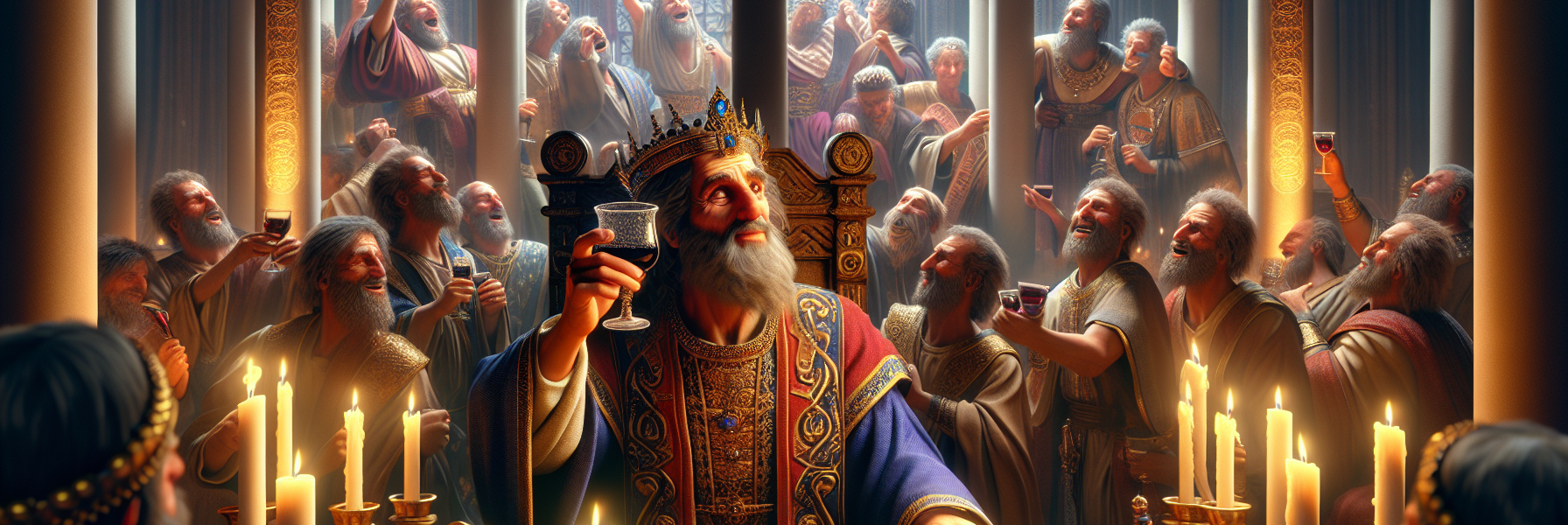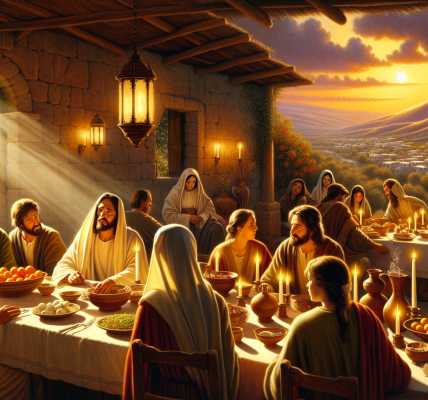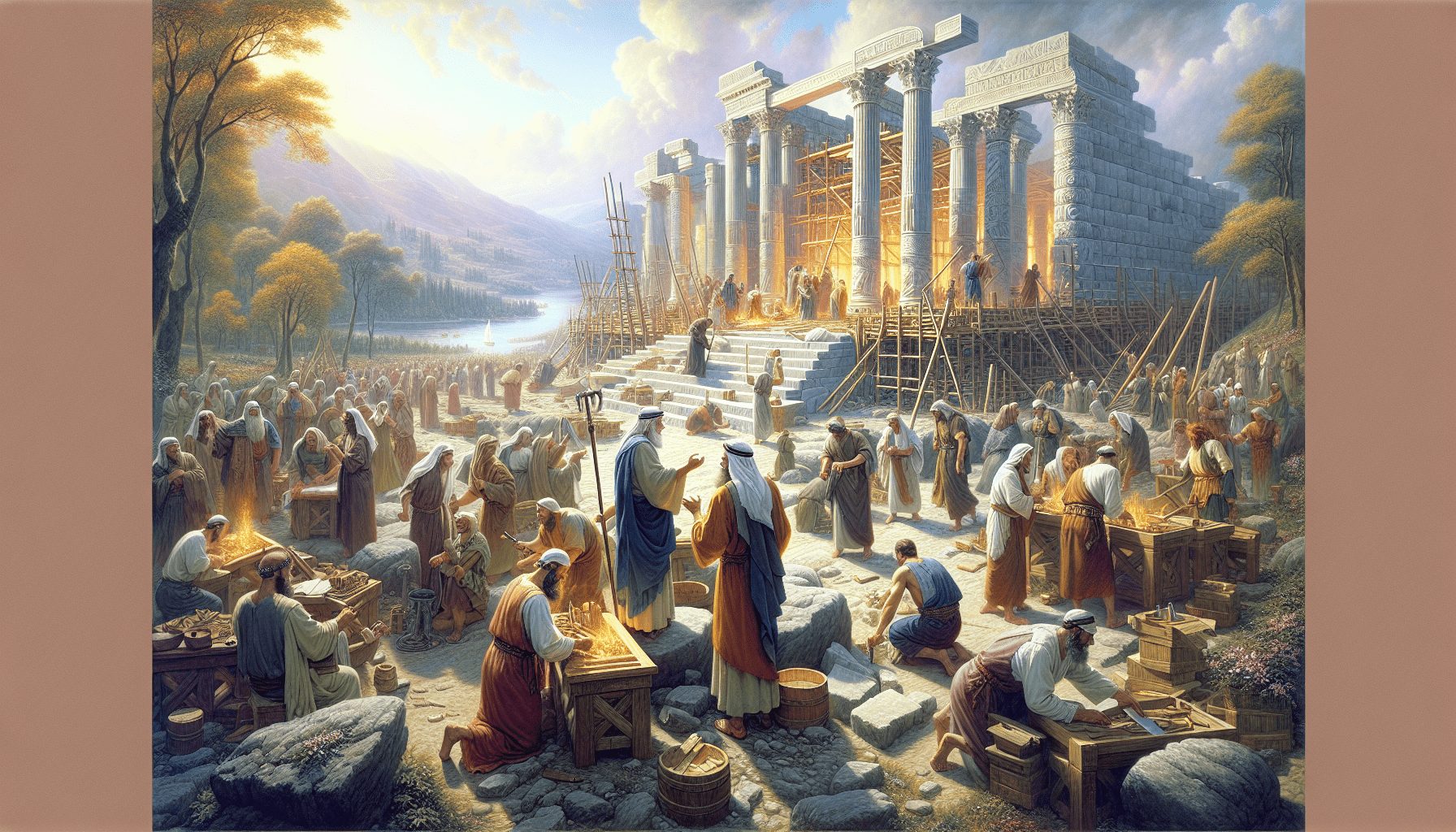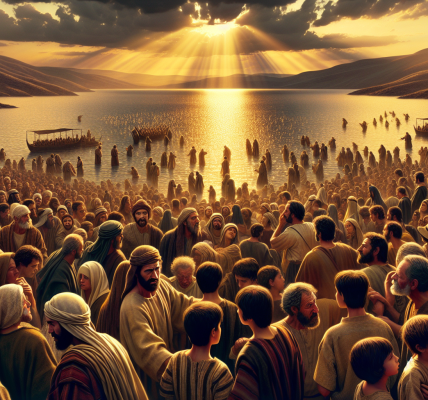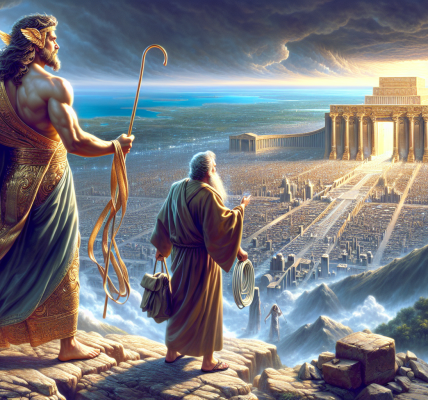**The Vanity of Solomon’s Pursuits**
In the days when King Solomon reigned over Israel in Jerusalem, he set his heart to explore the depths of human endeavor, to test all that life had to offer under the sun. He was a man of wisdom, blessed by God beyond measure, yet he resolved to seek out the meaning of pleasure, labor, and wealth—to see if any of it could satisfy the soul.
### **The Pursuit of Pleasure**
First, Solomon turned to mirth and laughter, indulging in every delight his heart desired. He filled his palace with the sound of feasting, the clinking of goblets, and the songs of minstrels. He surrounded himself with jesters and entertainers, thinking, *”Surely joy will fill the emptiness within.”* Yet when the wine was drunk, the music faded, and the laughter stilled, he found it all to be fleeting—a chasing after the wind.
“Laughter is madness,” he mused, “and pleasure—what does it accomplish?” The merriment of fools could not quiet the restless yearning in his spirit.
### **The Grand Works of His Hands**
Undeterred, Solomon then turned to great projects. He built houses of cedar and stone, vast palaces with courtyards and gardens. He planted vineyards, orchards, and groves of every fruitful tree. He dug pools of clear water to nourish the flourishing gardens, where blossoms perfumed the air and vines heavy with grapes stretched toward the sun.
He amassed servants by the thousands—stewards, laborers, and craftsmen—all to tend his estates. His wealth grew beyond measure: silver and gold flowed into his treasuries like rivers, and the kings of the earth brought him tribute. He gathered the finest horses and chariots, and his stables were the envy of nations.
Yet, as he walked through his grand halls and surveyed all his labor, a heaviness settled upon him. “I toiled for this,” he thought, “but when I am gone, who will inherit it? A fool may squander it all, and what then is my gain?” The works of his hands, though magnificent, could not grant him lasting contentment.
### **The Search for Wisdom and Folly**
Then Solomon turned his mind to wisdom, for he had been granted understanding beyond all who came before him. He studied the ways of men, the rise and fall of kings, the cycles of justice and wickedness. He saw that the wise man walks in light, while the fool stumbles in darkness—yet both meet the same end.
“Death comes to all,” he lamented. “The wise and the foolish alike perish. What advantage, then, has the sage over the fool?” Even wisdom, though better than folly, could not escape the grave.
In a moment of despair, he even gave himself to madness, embracing folly to see if there was any profit in it. He drank deeply of foolishness, thinking perhaps that ignorance might bring a fleeting joy that wisdom could not. But it, too, was emptiness.
### **The Burden of Labor**
Solomon grew to hate his toil, for though he had built a kingdom of splendor, he realized that he must leave it to another—one who had not labored for it. “This, too, is vanity,” he sighed. A man works all his days, only to pass his legacy to another who may be wise or foolish—who can say?
Even in the night, his mind was restless. The laborer toils under the sun, eating his bread in sorrow, yet when he lies down, sleep flees from him. The rich man, though surrounded by abundance, finds no rest in his wealth.
### **The Gift of God**
At last, Solomon understood: there is nothing better for a man than to eat and drink and find satisfaction in his labor. But this, too, is a gift from God. For without Him, who can find enjoyment? To the one who pleases Him, God grants wisdom, knowledge, and joy—but to the sinner, He gives the burden of gathering only to hand it to another.
Thus, Solomon concluded, all is vanity—a striving after wind. The pursuits of men, though grand, cannot fill the God-shaped void within. Only in the fear of the Lord is there true meaning, for He alone holds the measure of our days.
And so the king, though surrounded by every earthly delight, turned his heart once more to the One who gives life its purpose. For apart from Him, even the greatest treasures are but dust in the wind.
